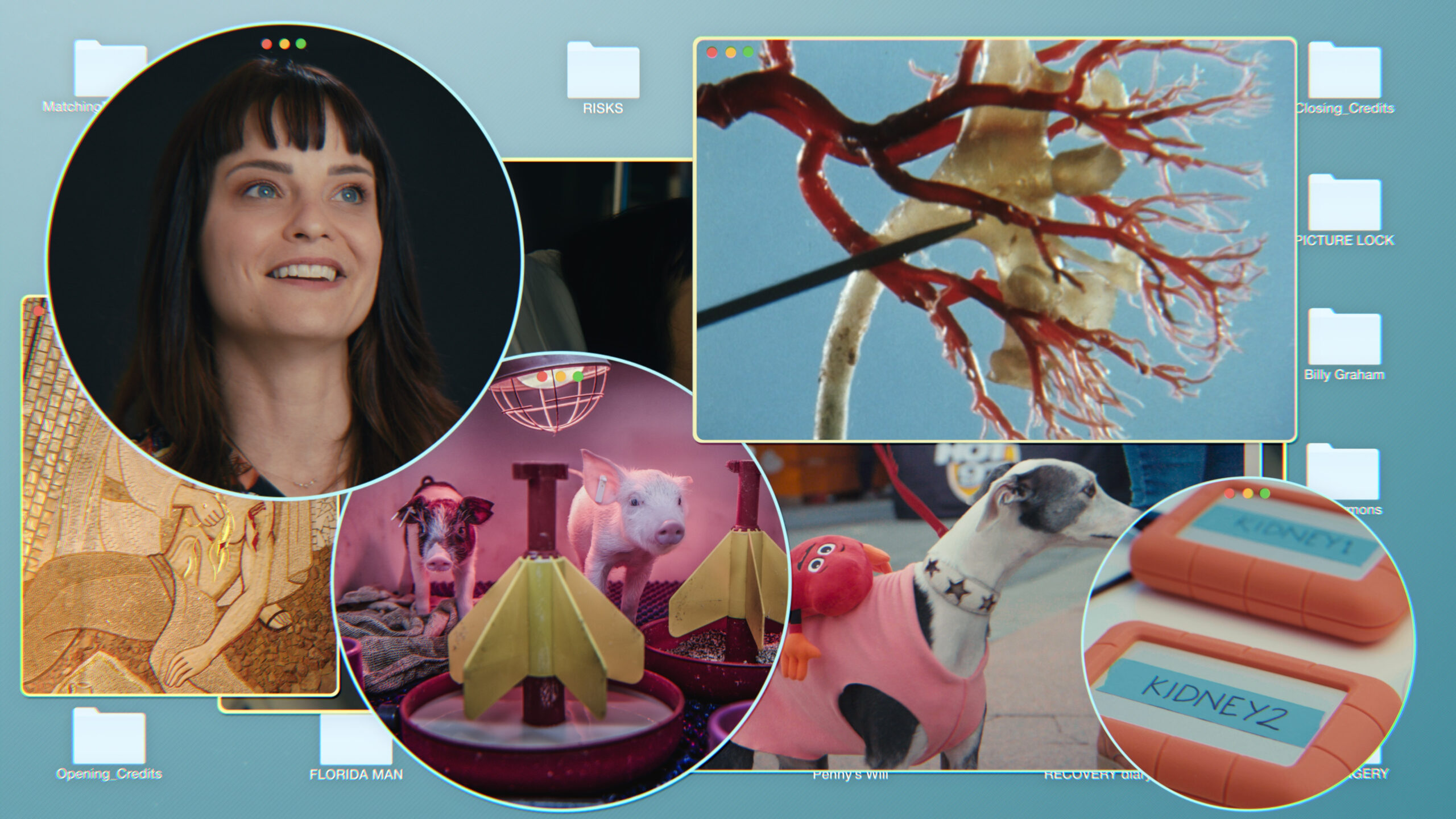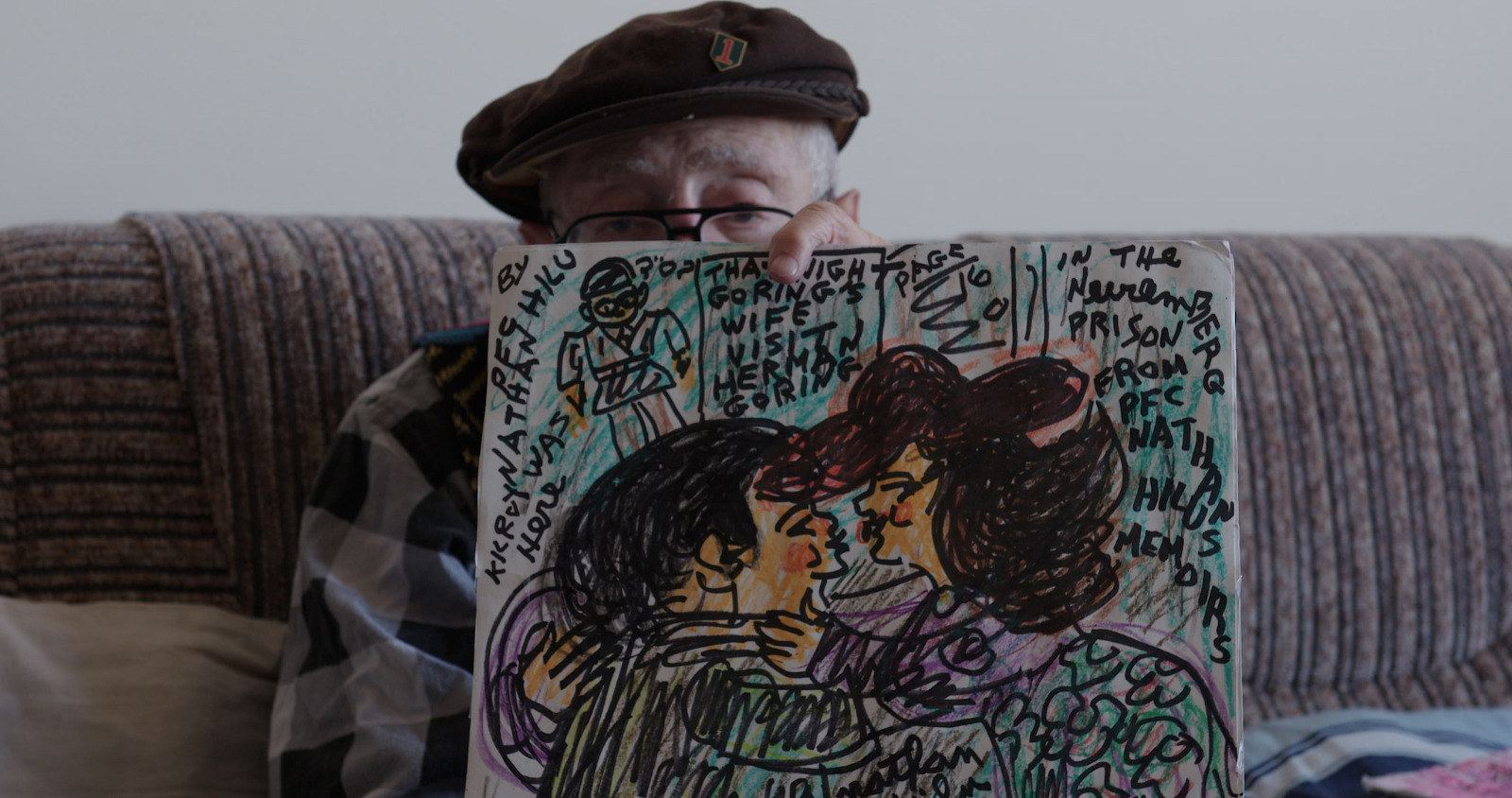Confessions of a Good Samaritan
(USA, 105 min.)
Dir. Penny Lane
Programme: Human Kind (Canadian Premiere)
Did you ever read the New York Magazine story “Who Is the Bad Art Friend”? Published in 2021, the story was a viral sensation with its tale of Dawn Dorland, who altruistically donated a kidney. She subsequently started a Facebook group to honour said donation. Dorland posted milestones in celebration of herself. However, amid the self-congratulation, she felt mortally offended when her supposed friend, Sonya Larson, didn’t “Like!” her posts. Name-calling, shaming in the group chat, a book deal, and Internet chaos ensued.
By comparison, one can call Penny Lane “The Good Art Friend.” Her new film Confessions of a Good Samaritan has echoes of Dorland’s act. Lane literally offers a piece of herself to save a complete stranger. She makes a departure from her body of work, although one can draw parallels with Hail, Satan! and thematic overtones with the quirky quack doctor of Nuts!, by putting herself squarely in front of the camera. This personal work sees Lane reflect upon her choice to “contribute” to society through altruistic non-directed organ donation. Like Dorland, she has no idea or say in terms of who gets her kidney. It could be someone of any age or ailment. Why they need it is not up to her. Rather, Lane simply wants to help fill a huge gap in a medical emergency.
A Kind of Sociopathy?
Lane takes addresses the camera from the outset and tries to articulate her reasons for donation. Everyone seems to want to know why she wants to do it. Similarly, Lane wants to know why people need to know why. Lane interviews a handful of Dawn Dorland types who share with big warm toothy grins that donation was just the right thing to do. Helping out is the reward. However, as Lane pauses this smiling interviews, she knows there’s a bigger story here. If everyone got high on the kidney supply, there wouldn’t be a shortage.
Confessions of a Good Samaritan takes a Socratic approach to the nature of altruism. Why people still raise their eyebrows over one’s impulse to “do good” is an avenue worth exploring. On the other hand, she interviews doctors who wonder if altruism is the flipside of sociopathy. Is being too nice, consciously so, the binary of a sociopathic lack of empathy? The story of the Bad Art Friend, ironically, makes one wonder if Lane encountered such an interplay between sociopathy and altruism before.
The film also looks at the genesis of organ donation, which began with transplants between identical twins, and the many ethical quagmires that landed upon the altruistic hinge. Tales from the organ trade make cautionary tales about paying for organs, while American lawmakers urge reform, like tax credits, to incentivize donation. As Lane demonstrates in the film, the actual process for donating is emotionally and physically demanding, and nobody should go into debt for donating.
The Shelf Lives of Others
The director’s signature inquisitiveness and playfulness fuel the film. Confessions of a Good Samaritan retains the sense of humour of Lane’s prior works even if one senses a change of heart. She mixes layers of materials—archives, onscreen diary entries that she writes in her laptop, verité—to create a fun and thoughtful collage. These pieces to connect the dots in a larger philosophical consideration of human nature. In the aftermath of Trump and the grumpiness of the lockdown years, it’s a refreshing avenue to consider. There’s also a lot percolating under the surface that makes this film Lane’s most personal and arguably resonant work.
As Lane tells her story in a confessional, her account evokes complicated terms of a person’s “worth” in society. Lane is just hitting 40 years old when her kidney donation journey begins. She admits that being childless is part of her motivation to give back. Confessions of a Good Samaritan resonates with the jarring ache of hitting middle age as Lane undergoes her process.
There’s a sense that regenerating one’s body, contributing to the cycle of life, as it is, is the hallmark of being a contributing member of society. For a lot of people, especially creative types, this route simply isn’t an economic reality that aligns with biological clocks. There are jarring moments of vulnerability throughout Confessions of a Good Samaritan in which Lane realizes that she’d be probably be alone in this process if she wasn’t making the movie. She makes a will, for example, and gets her crew members to sign it. These moments are painfully real, but also striking markers that everyone has their expiry dates. In cutting herself open in more ways than one, Lane invites others to consider the intangible rewards of altruism. Her film is good medicine.
Confessions of a Good Samaritan screens at Hot Docs and DOXA 2023.
Get more coverage from this year’s festival here.











